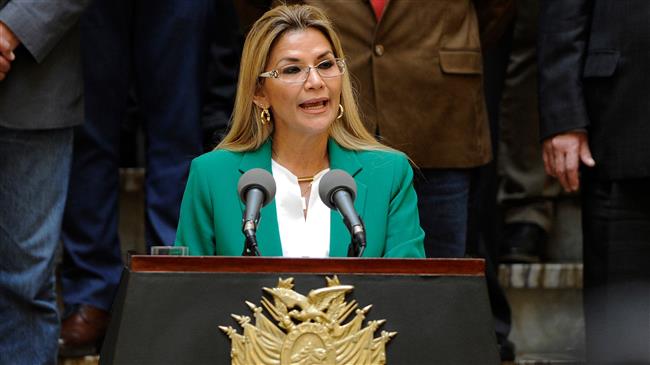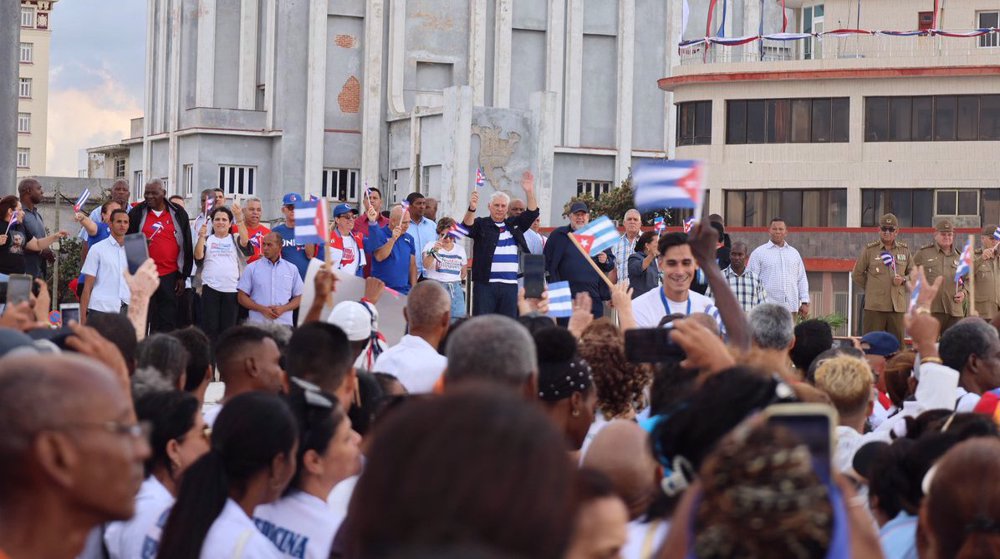Bolivia suspended Cuba ties under US pressure: Havana
A day after the new regime in Bolivia announced the suspension of diplomatic ties with Cuba, a long-time ally, Havana has said the right-wing interim government of the Andean country severed ties under pressure from the United States.
The government of Bolivian President Jeanine Anez, which took power after an effective coup against President Evo Morales in November last year, announced that was suspending diplomatic relations with Havana on Friday.
Morales, now in Argentina, has been in exile since he was forced to resign under pressure from the Bolivian military in what he said was a US-backed coup d’état against his administration.
The Bolivian Foreign Ministry accused Havana of having “systematically” damaged bilateral relations since the ouster of Morales.
In reaction to the suspension of the ties, the Cuban Foreign Ministry said in a statement on Saturday that since the departure of Morales, the administration of US President Donald Trump had “applied pressure on Bolivia to impose deterioration in relations with Cuba.”
“It is not casual that the facts described here coincide with a brutal, politically-motivated US campaign against the international medical cooperation Cuba provides to dozens of countries,” said the ministry.
“The acting authorities unfurled a ferocious campaign of lies against Cuba,” it said.
Bolivia, however, said it had suspended the relations due to “inadmissible comments” by Cuban Foreign Minister Bruno Rodriguez Parrilla and “the constant hostility” by Havana against the “democratic process” in Bolivia.
In a Twitter message on Thursday, Rodriguez had accused Anez of “servility” toward Washington.
But the diplomatic row started on Wednesday, when Anez accused Cuba of keeping 80 percent of the payments that Bolivia made for the work of Cuban doctors in the country. She also said that less than a third of the Cuban professionals who were in Bolivia as part of a healthcare program with the country were health professionals.
Cuba dismissed the remarks as “vulgar lies.”
Cuba’s health service has sent more than 50,000 health workers to more than 60 countries.
‘All wars have rules. All of those rules have been broken’ by Israel
VIDEO | Report flags India’s violation of rights of Rohingya detainees
Turkey's foreign minister meets Syria's de facto leader in Damascus
'Next to impossible' to rescue patients from Gaza's Kamal Adwan Hospital: Director
VIDEO | Vietnam current prosperity
Report blames gasoil exports for shortage at Iranian power plants
VIDEO | Hind Rajab Foundation names Israeli war criminals vacationing after Gaza genocide
VIDEO | Australians rally for Gaza ahead of Christmas festivities














 This makes it easy to access the Press TV website
This makes it easy to access the Press TV website